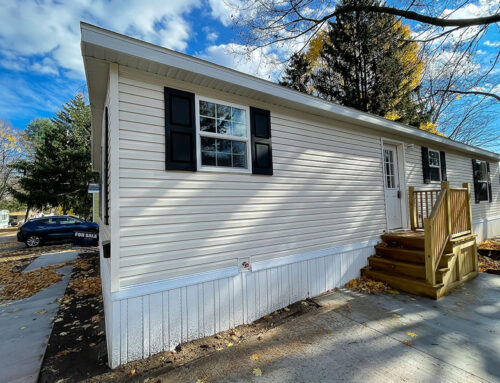When Ronald came to me with questions about building his real estate investment business here in New York—one of the most competitive cities to invest in—he seemed discouraged. Even as a new investor, he understood that it’s already fairly expensive to buy and renovate homes in the Big Apple and that it can be that much more so if you don’t have a way to find off-market NYC properties. But, he wasn’t so sure that he could do that. I assured him that he could and that, if he looked closely, he’d find that there are actually several strategies for getting distressed homeowner leads that not every investor knows about. Since I’ve been doing this a while, I offered to go over the most common methods many investors use as well as the one I’ve found to be the most effective.
Where to Look for Off-market Properties in NYC
Honestly, any real estate investor worth his salt—or with salt-and-pepper hair, like me—knows that the best deals aren’t always the ones that are the most heavily advertised. So, if you find a cheap property online or in the real estate section of the New York Times, it probably won’t stay cheap for long. The more exposure a home gets, the stronger the competition will be. And, the stronger the competition, the higher the selling price is likely to go. Of course, that’s great for the seller. But, when you’re in the business of investing in the South Bronx or buying income property in Queens, your goal is to buy as low as you can so that you’re able to realize returns that make sense and dollars. To do that, your best bet is always going to be going after off-market properties.
So, where do you look for properties that aren’t being advertised? You’ve got a few options:
Lead Lists
Finding fixer-uppers in New York City that aren’t yet being advertised can be as easy as buying lead lists. These lists, once accessible by way of real estate agents only, can be purchased from third-party vendors online and customized to target specific types of homeowners. That means you can buy lists of homeowners who have missed mortgage payments, are in the middle of getting a divorce, or who recently had a death in the family. Instead of waiting for the Department of Finance to hold its yearly property Tax Lien Sale, you can get a list of homeowners who have just fallen behind on paying their taxes. In each of these situations, the homes may not be up for sale—yet. But, if a homeowner’s situation is financially “ugly” enough, they might consider selling to you.
But, you will run into a couple of snags with this strategy that should make you think twice about using it. First, there’s the issue of competition. Since lead lists are easier to get and more customizable than they were in the past, a lot of investors use them. So, though the properties listed may not formally be on the market, they may still be strong targets of attention. And, the list themselves aren’t always up to date since distressing situations can shift in an instant. Even if the homeowner fails to get current on their property taxes or the divorce does indeed move forward, your call about buying the home won’t always be welcome. Difficult circumstances are often embarrassing and a string of nosey investors, including you, could be the last people a distressed homeowner wants to talk to.
Networking
Networking with other local real estate professionals is another way you could get access to off-market deals. Anyone who’s worked in the industry long enough, like real estate agents, developers, or attorneys, is likely to know about properties that aren’t on the open market yet. So, developing a relationship with these professionals could benefit your bottom line if they choose to bring these opportunities to you. If you don’t have a lot of industry contacts yet, it’s not difficult to get them. Most professionals belong to groups that hold occasional meetings in which other industry experts can attend. And, there are several real estate investing clubs in New York that are open to everyone, potentially giving you a one-stop shop for meeting real estate colleagues now who might bring you an off-market property later.
The problem with networking as a strategy for finding off-market properties is that it can take more time and money than you have and still not deliver the goods. To build trust with your colleagues, attending one industry-related meeting and joining one investment association won’t be enough to get the job done. You’ll need to meet and greet as many professionals as you can, then work at maintaining those relationships as often as possible. Otherwise, you won’t be the first investor who comes to mind when there is a deal to share. But, all that work can amount to a full-time job—one that won’t necessarily pay with a property no matter how many club dues and dinner tabs you pick up.
Direct Marketing
Reaching out directly to distressed homeowners and offering them a way to contact you when it’s time to sell gives you a third option for finding off-market properties. You can do this by mailing postcards and flyers to specific neighborhoods, posting ads on bus and subway stops, and buying airtime on radio stations like WFAN. If you’re savvy with social media, you can also try using Facebook and Instagram. The point, of course, is to use every marketing outlet available to you—and, that you can afford—to regularly get your name in front of homeowners who find themselves in desperate need to sell now or somewhere down the line.
Unfortunately, like networking, reaping the potential rewards of direct marketing takes time and deep pockets—without any guarantees. So, you’ll have to exercise patience as your fellow New Yorkers get to know your name and as you determine what works and what doesn’t for helping them remember it. Then, you’ll have to keep at it so that your competition doesn’t sneak in and steal your spotlight. And, that will likely force you to dig deeper into your cash reserves assuming, as an investor trying to build your portfolio, that you have any. Even if you do, spending it all on marketing can leave you wanting when it comes time to buy and renovate a home to rent out or resell—the very reason you’d bother investing in direct marketing to begin with.
You may find some modicum of success if you use any of these strategies for finding off-market properties to grow your real estate portfolio. Use them all and your chances of doing well might increase. A better solution for getting the best deals, however, is to join a team whose marketing tools and resources drive motivated home sellers to you and that gives you the support to help convert those leads. That’s how I built my New York investment business years ago and how I keep it running smoothly today.
The Most Effective Solution for Locating Local Investment Deals
As a new investor, I was eager to jump right in and try every available strategy for finding local investment deals. After spinning my wheels more than a few times, it was obvious that the only way I’d grow my business in New York City as quickly as I wanted was to locate motivated sellers that not every other investor had found. And, I had to be able to convert them to sales, too. It seemed like a tall order in the Big Apple and not one I could realistically expect to achieve.
That all changed when I became an independently owned and operated HomeVestors® franchisee. Not only did I receive the training and support required to negotiate, buy, and renovate investment houses, I also got qualified leads. And, the leads that came in—primarily from the nationally-known and trusted “We Buy Ugly Houses®” ad campaign—were already primed to convert thanks to the familiarity of the HomeVestors® brand. Personally, I still had to work hard to earn, and keep, distressed homeowners’ trust when they needed “solutions for ugly situations®.” But, professionally, I have the right tools to do so. And, so has all the other franchisees who’ve walked through the HomeVestors®’ door since 1996, including Ronald—my newest New York City colleague.
Get more effective at finding local off-market properties. Contact HomeVestors® about joining the “We Buy Ugly Houses®” team to grow your real estate investment business today.
Each franchise office is independently owned and operated.
Contact
"*" indicates required fields





